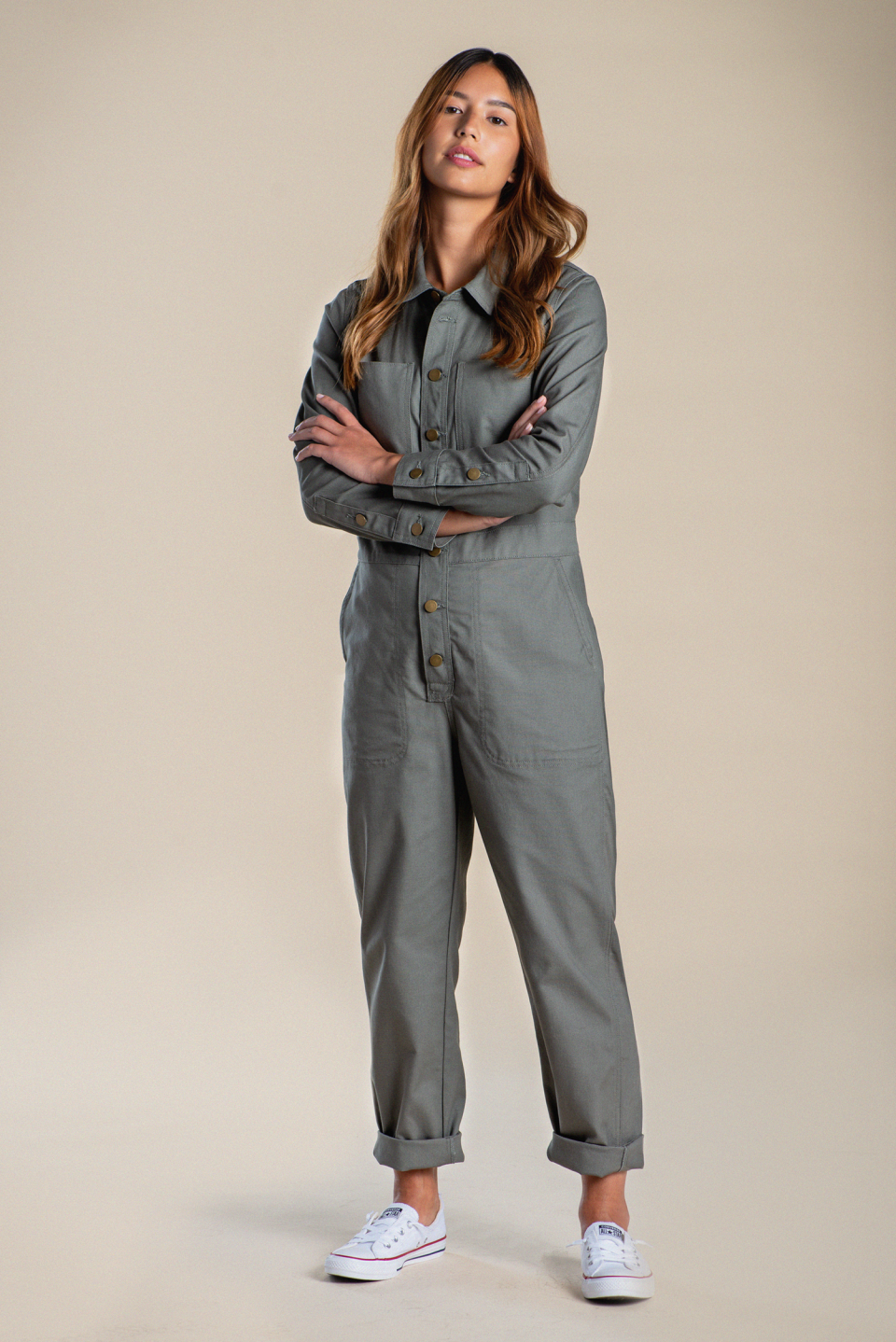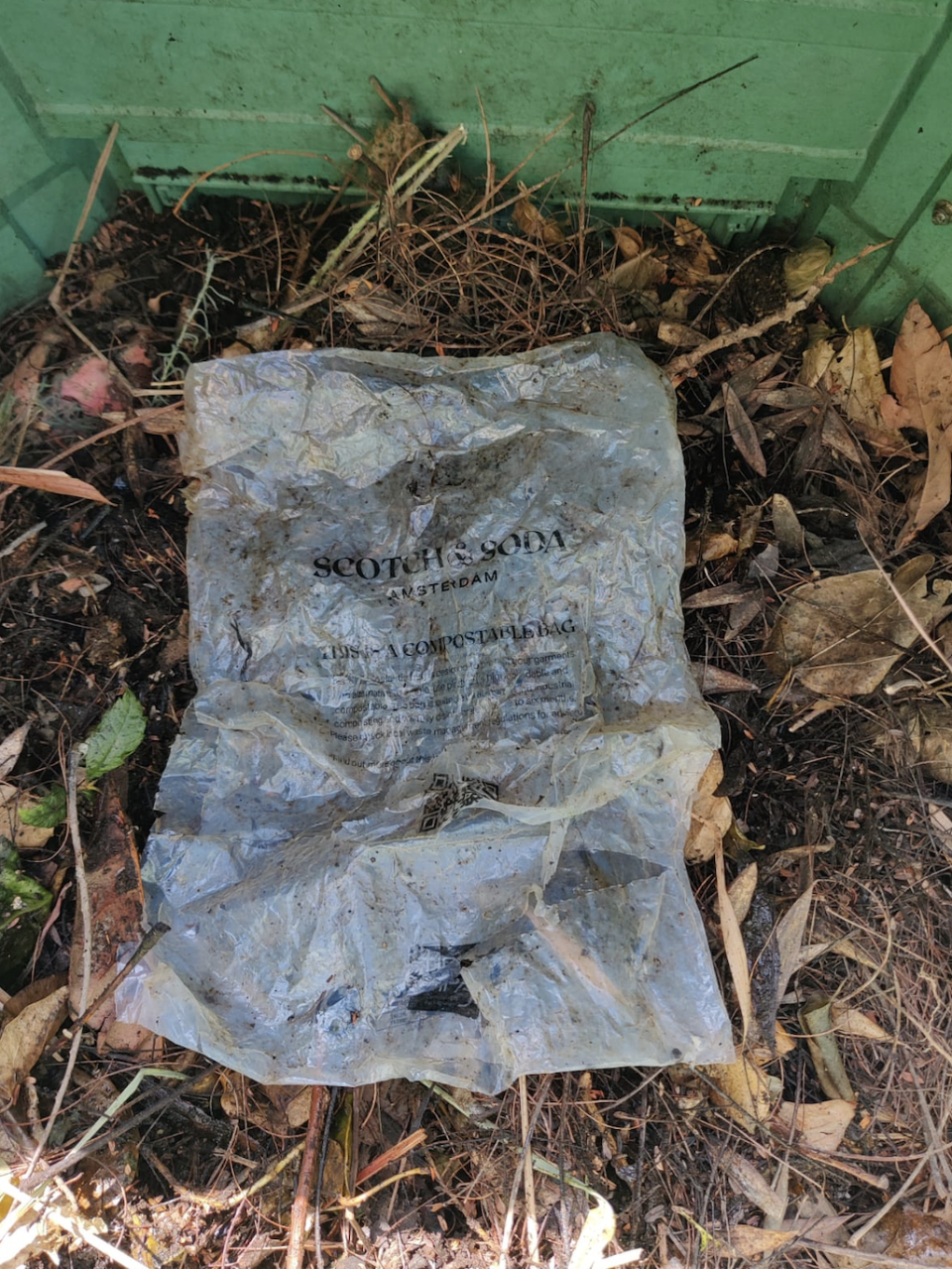Short Takes: Sustainable Fashion’s New Arrivals, Bio-Polybags and More

How New Brands Spin Used: A suite of new companies are competing for sustainability props by turning excess around.
“We-Ar4 was founded on the core value of being as responsible as possible in everything we do,” said We-Ar4 cofounder Anna Bakst, who is also chair and chief executive officer of the well-funded biotech company Modern Meadow.
More from WWD
Bakst shared how We-Ar4 exclusively uses thrifted pieces in its styling and is dedicated to sourcing a majority of each capsule collection with 85 percent to 95 percent excess, which the brand defines as industry deadstock or surplus, or the many textiles and leathers left unused each season.
“We ‘thrift’ high-quality leathers and luxury textiles that are left over from past seasons by other brands, starting from there and designing backwards, championing and celebrating what others have not used,” Bakst said. The concept is commonplace for many small and zero-waste designers.
The brand counts five capsule collections every year with its most recent being Capsule 003, which consists of 35 rtw pieces ranging from $95 to $795, as well as handbags ranging from $95 to $495.
Michele Rutigliano, cofounder, creative director and chief product officer of We-Ar4 described the latest capsule as “polished, smart and effortless.” The capsule, she said, is about “exploration and distortion” and “shifting perspectives and letting go of preconceived notions.”
In another responsible-at-launch example, Blue&Yellow hails from San Francisco, specializing in responsible basics for men and women using recycled feedstocks.
The brand debuted its “Recycled & Respun” as well as its “Rescued & Revived” lines at launch using textiles from a majority of post-industrial recycled cotton and polyester sources. The assortment includes shirts, T-shirts, joggers and more and ranges in price from $18 for socks to $198 for coveralls.
“Our Rescued and Revived collection uses surplus, or slightly damaged fabrics from the apparel industry that would otherwise be incinerated or hauled off to landfills,” said Blue&Yellow cofounder and chief executive officer Michael Seville. “Each year, $100 billion of fabric goes to waste worldwide. In San Francisco alone, we send 4,500 pounds of textiles to landfill every hour.”
One such improved style, the Muir crewneck, is made with 50 percent Recover recycled cotton (from the eponymous material innovation company based in Southern Europe), 48 percent recycled polyester and 2 percent elastic.

Courtesy
On the resale front, there’s Robe Looks, an upscale service and resale marketplace stocking pre-owned clothing from celebrities’ and athletes’ closets.
Robe Looks handles all logistics, including processes like authentication, product laundering and listing. Prices are determined by market rate as well as factors like item source, condition and demand. In addition, each drop gives no less than 20 percent of proceeds to a charity of the original clothing owner’s choice.
The start-up held its first product drop last week featuring two collections, one from NBA Lakers star Avery Bradley and Minnesota Timberwolves’ Taurean Prince. The next launch is slated for Thursday and features DJ Augustin from the Houston Rockets, supporting youth development institute Stroke of Love.
Robe Looks touted brands like Yeezy, Fear of God, Off White and Dior that were previously worn by the talent.
“We are very pleased with our consumer response thus far,” Chad W. Patterson, founder and chief executive officer of Robe Looks, told WWD. “Twenty-five percent of our product offering sold within 48 hours. As we grow and gain more exposure as a company, we’re confident that we’ll continue to serve the market and our consumers better with each collection drop.”
Patterson said Robe Looks is uniquely poised to capture marketshare as a Black-owned brand, “which is crucial to understanding culture, working with athletes that look like the founder and understanding how much BIPOC folks drive fashion, trend and purchase power,” he said.

Courtesy
All Hands In for Biodegradable Polybags: There’s a day for everything these days, and in honor of World Soil Day (which was Sunday), Scotch & Soda is partnering with TIPA, a company that creates compostable and biodegradable packaging.
The agreement is part of the Amsterdam-based brand’s commitment to move away from plastic polybags for all products by 2025.
In 2022, a minimum of 1 million of Scotch & Soda’s garments will be packed in TIPA bioplastic bags. When its spring and summer collections hit stores, TIPA bags will represent 21 percent of the total product packaging for high-volume items such as T-shirts, jeans, sweatshirts, sweaters and shirts across men’s, women’s and children’s wear, Scotch & Soda said.
Fashion brands have historically used polybags made from polyethylene, a polymer derived from fossil fuels, to offer protection from water, handling and transportation issues. TIPA’s packaging, which is made from 20 percent bio-based plastic derived from corn starch and sugar cane, offers the same level of protection as conventional bags, Scotch & Soda said, but can be composted rather than discarded in landfills or incinerated. They are designed to fully disintegrate with three to six months.
“We believe there is room for improvement when it comes to the implementation, collection and composting of bioplastic packaging in the fashion industry,” said Jelle de Jong, Scotch & Soda’s sustainability director. “By working together with TIPA and local waste processors, we hope a product traditionally considered as waste will, through the composting process, return nutrients to the soil.”
For customers who are unable to compost, Scotch & Soda is offering the opportunity to drop off their TIPA bags in select stores including in London, Amsterdam, Paris and New York.

Courtesy
Sign up for WWD's Newsletter. For the latest news, follow us on Twitter, Facebook, and Instagram.